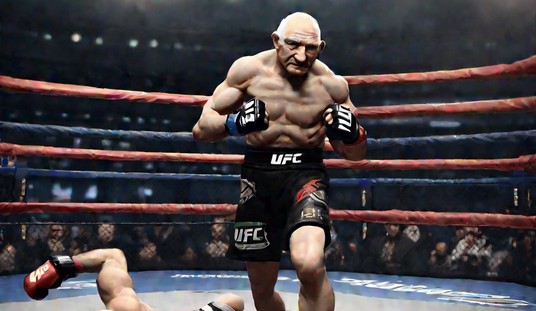Civil rights activists and the Justice Department are eagerly watching the implementation of a new voting system that allows a single voter to potentially vote six times for a single candidate in order to level ethnic representation in Port Chester, New York’s Board of Trustees. The system was designed to help Hispanics, who make up 46% of the population, but many of whom are non-citizens, to get a ‘fair’ number of seats. The NYT writes: “Latinos made up 46 percent of the village’s roughly 28,000 people in the most recent census, in 2000, though many were not American citizens. About 43 percent of residents were non-Hispanic whites and 7 percent were blacks, according to the census. No Latino has ever been elected to the six-member village board, and the preferred candidates among Latino voters have usually been defeated.” The answer was to let everyone vote multiple times for a single candidate.
In 2006, the Justice Department sued the village under the Voting Rights Act, saying its system of electing six at-large board members denied the Latino population fair representation. A federal court judge agreed and ordered Port Chester to come up with a more equitable process.
The Justice Department pushed for voting districts that would each elect its own member, giving more power to Latino voters, who predominate in a few neighborhoods. But the judge approved the village’s proposal: a rarely used process known as cumulative voting, in which each voter has six votes to cast any way he likes — say, one vote each for six candidates or six votes for only one candidate.
Cumulative voting has been used in other settings: corporate voting, “where it is mandated by many U.S. states”. But its recent political use has been in furtherance of the Voting Rights Act. “As of November 2009, more than fifty communities in the United States use cumulative voting, all resulting from cases brought under the federal Voting Rights Act.” By allowing a vote to be divided into parts, each of which can be separately cast (the Port Chester system gives each person 6 x 1/6 ballots) the system retains the ‘one man, one vote’ principle in a certain mathematical sense while allowing the expression of “preference intensity”.
Under cumulative voting, you can give a candidate a 4/6th share of your approval and 2/6th to his rival. If you are undecided, you can give each a 3/6th share. One potential problem with the system is that it empowers blocs with very strong preferences. Votes can be ‘accumulated’ on issues or candidates that are deemed important by certain groups. Where majority preference intensity is weak or diffuse and minority preference is concentrated they can outvote the majority in narrow areas, much in the same way that a smaller army can win a battle at a single point because it can concentrate its forces against a section to which the bigger army is indifferent. While cumulative voting is supposed to provide a check against the ‘tyranny of the majority’, it undeniably creates the opportunity to gerrymander the vote on an issue or candidate basis.
Gerrymandering is a form of boundary delimitation (redistricting) in which electoral district or constituency boundaries are deliberately modified for electoral purposes, thereby producing a contorted or unusual shape. The resulting district is known as a gerrymander; however, that word can also refer to the process.
Gerrymandering may be used to achieve desired electoral results for a particular party, or may be used to help or hinder a particular group of constituents, such as a political, racial, linguistic, religious or class group.
When used to allege that a given party is gaining disproportionate power, the term gerrymandering has negative connotations. However, a gerrymander may also be used for purposes that some perceive as positive, notably in US federal voting district boundaries which produce a proportion of constituencies with an African-American or other minority in the majority (these are thus called “minority-majority districts”).
This creates the incentive for special interest and ethnic issue and candidate framing. In this case cumulative voting allows the formation of an Hispanic Gerrymanderying for “positive” purposes. It creates the incentive to run as an “Hispanic” candidate where an appeal can be made to strong preferences. It may militate against a candidate who runs as an ‘American’ because the preferences in that case are diffuse. In Port Chester, some officials are wondering whether the rule change will be enough to guarantee a Latino win. If not they are prepared to try, try again. The NYT article continues, “if no Latino wins, some village officials have privately fretted, the case could end up back in federal court, which will retain jurisdiction for three election cycles. But Mayor Pilla said he thought that possibility was ‘very remote.'” But not so remote as to inspire efforts to guarantee it won’t happen.
Although most people rarely give voting systems much thought, the mathematics of capturing the will of the people allows this quantity to be sliced and diced in various ways. It’s an area for political activism, one in which the side which willing to put in the most time attending boring meetings often wins in the long run. Plurality, preferential systems, proportional representation, block voting etc all have their uses and activists can favor one or the other depending on their needs. In contrast, the ordinary stiff with ‘diffuse preferences’ may not react until he feels truly threatened.
Which voting system is best is determined by a political judgment expressed through — the voting system. Inevitably a voting system advanced to help the ‘minority’ will attract opposition from rival interests, in which case it is called a ‘backlash’. This creates a situation in which the voting system itself becomes an issue. We often think of voting rules as given or extremely stable, like the rules of golf. But in fact setting voting rules is one of the most political of all activities.









Join the conversation as a VIP Member